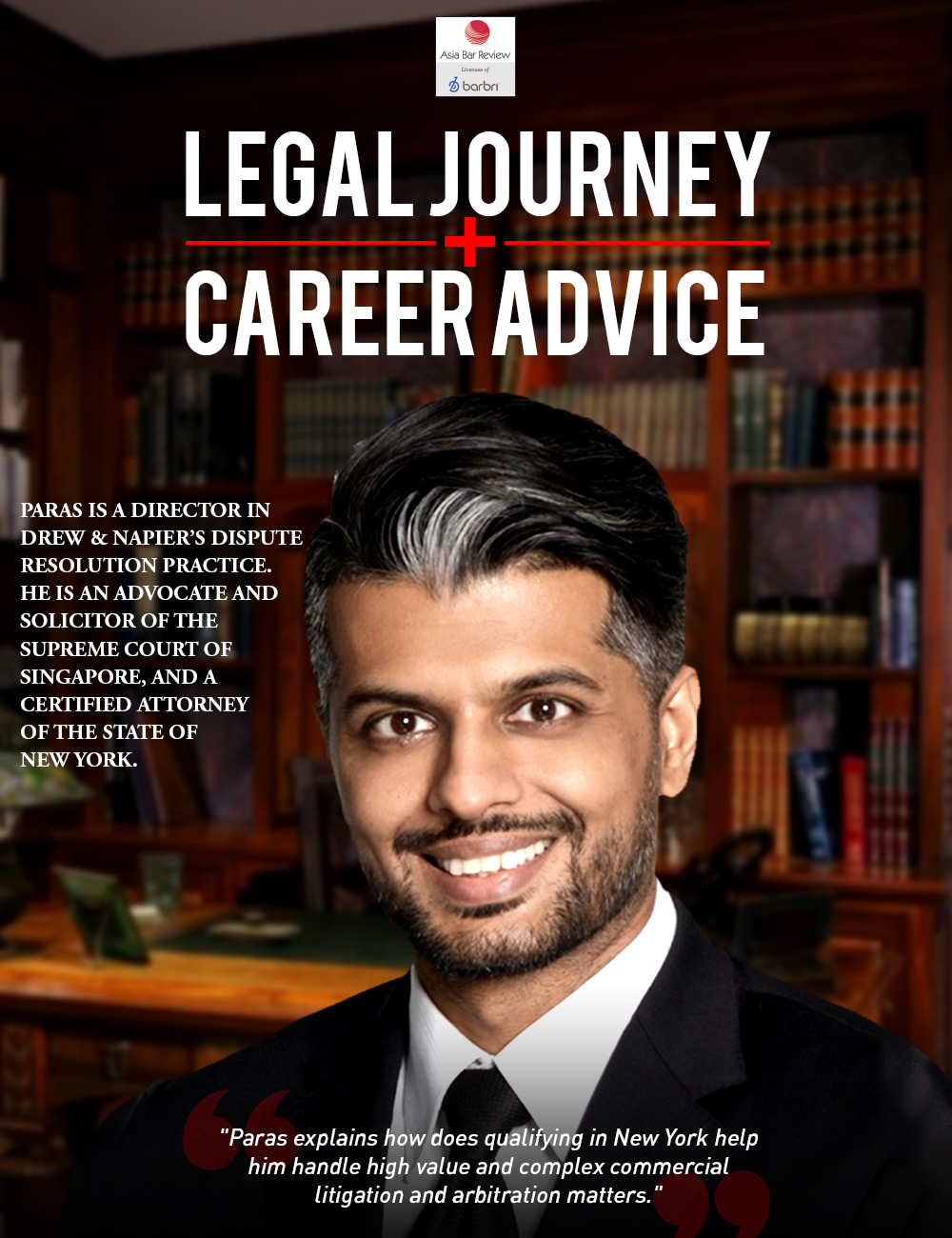1. You have a dispute resolution practice, and handle disputes relating to a wide range of subject matters ranging from commercial contracts, to tort, to civil fraud, and to infrastructure projects, to name but a few. Do you regularly run cross-border dispute resolution matters? What are the challenges in running such matters?
I’m a Director in Drew & Napier’s Dispute Resolution practice. I am a litigator and arbitration counsel, as well as an arbitrator.
I’d say that the vast majority of the matters which I handle have a cross-border element to them. The cross-border element typically arises in one or more four ways – first, one or both of the parties are foreigners, second, the tribunal or court is situated overseas, third, the subject matter of the dispute (for example, a property or a construction) is situated overseas, and finally, that one or more foreign laws apply to the dispute – either by agreement of the parties or otherwise.
There are a number of challenges one may face with cross-border matters:
• Lack of familiarity with the laws of the jurisdiction in question;
• Lack of familiarity with the procedures of the jurisdiction in question, or a foreign party’s lack of familiarity with the procedures and laws of Singapore
• Cultural differences – language, local customs, etc.
Ultimately the best resolution to most of these is to work with, and get advice from, good local lawyers in each jurisdiction, and to communicate well with all the parties.
2. How has dual qualifying helped your career development?
It has helped me in a number of ways. First, it has provided me an insight into another culture, and a depth of knowledge of another system of law and procedure, which I would not have obtained had I been qualified only in my home jurisdiction. Second, clients do look at your CV. If you are qualified in their home jurisdiction or a jurisdiction with which they are familiar, that may have a bearing on whether or not they decide to engage you. Finally, qualifying in jurisdiction in which it is notoriously tough to qualify, and which is internationally recognised, does lend you some credibility – with clients, with opponents and with tribunals.
3. What is the most unique challenge and/or opportunity which see your firm or practice area facing?
A major challenge to law in general is the growth in AI. There is a big wave of AI development coming, and it is anyone’s guess precisely how that will change the legal industry. For example, you have AI that may be able to research a legal point in a fraction of the time and for a fraction of the cost of a junior associate. You also have AI that can determine a dispute once you enter the factual scenario into it. By all accounts, AI is going to change the legal industry in big and unprecedented ways. But this also presents great opportunity. If you are good with your AI fundamentals, and nimble enough to pivot, you can potentially co-exist with the AI companies and even thrive. In my view, the key is to be embracing of change.
4. What advice do you have for law students aspiring to pursue a legal career in terms of how to tackle the recruitment process and prepare their “life” after law school?
I would advise all budding lawyers to think early on about which areas of law they wish to practice, and work towards it. I would also advise students to be realistic about how a career in the law is like, and to brace themselves and their loved ones. It is not all glitz and glamour as is portrayed in the movies. Law is a demanding career – with extremely long hours, demanding clients, bosses and judges, and seemingly unrelenting work. However, it is an intellectually rewarding career. A lot of young lawyers end up leaving the profession in the first 2-3 years, after realizing this is not what they had expected when they joined the profession. You need to be prepared to put in the work (including working on weekends or on holidays), especially in the first few years of your career. If you put in the work, your fundamentals will be solid, and I assure you that you will be a good lawyer in the future.


